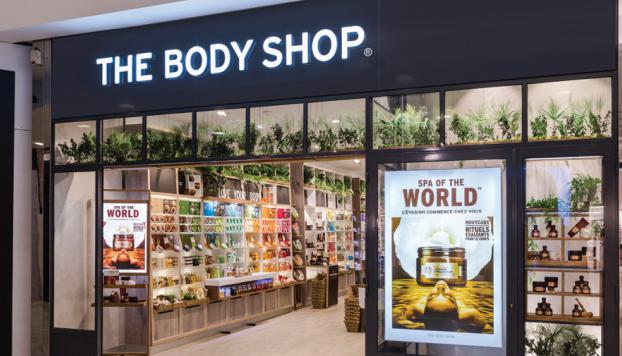Consumers have moved quickly towards mobile-first shopping. Chloe Rigby considers the retail response
Back in 2014, House of Fraser became one of the first major UK retailers to unveil a mobile-first website. It came at a time when m-commerce accounted for 27% of online sales, according to figures from IMRG. But at House of Fraser, smartphones and tablets were already used in more than half of visits to the website.
Fast forward to February 2016 and IMRG signaled a major digital tipping point, as mobile overtook desktop as the channel in which most – 51% – online retail sales were made. More recently, IMRG figures suggest that 56% of e-retail sales took place via mobile devices in the fourth quarter of 2016. Smartphones accounted for 54% of mobile sales in December 2016, although in March 2017, according to IMRG figures, tablets and mobile phones each had a 50% share of sales.
In their joint The Mobile Mandate report, published in February 2017, OC&C Strategy Consultants, Google and PayPal suggested that by 2020 two-thirds of UK online retail, worth £43bn a year, would take place via mobile. That’s up from £13.5bn in 2016. Going further, it said, by 2020 some 80% of all online retail would involve a smartphone at some stage in the purchase journey. The report also contained a warning: UK retailers are still lagging behind international competitors in the US and in Asia in terms of their preparedness for the shift to mobile.
Alex Mathers, associate partner at OC&C Strategy Consultants, said at the time of the report’s launch: “Smartphone shopping is taking over online retail, bringing with it fundamental changes in how, when and where people shop. Brits are shopping more whilst out and about, they’re using mobile to research and compare prices for later purchases, and they’re spending more on mobile while in-store, very often with other retailers. There’s money to be made by tapping into these changing behaviours, but on the flip side, retailers that fail to adapt will find themselves haemorrhaging customers. Right now, the average UK retailer’s strategy should be mobile first – in a few years, it may well be mobile only.”
Since House of Fraser took the decision to develop a responsive website, it has been followed by many others. Among the most recent, The Body Shop announced its move to a mobile-first ecommerce platform in February, reflecting the fact that 52% of its online traffic is now via smartphone, and 11% via tablet computers. The retailer is aiming to see 20% of sales come from ecommerce, after a year in which its global ecommerce sales grew by 19% in 2016.
Domino’s Pizza Group is another notable exponent of mobile commerce: some 73% of its online sales were made via mobile in the year to 25 December 2016. Online sales themselves accounted for 72% of all its delivered sales during that time. By the end of the year, 14.9m people had downloaded the Domino’s iPhone, iPad and Android apps.
Now, Google has joined these retailers in deciding that it’s time to put mobile first when it comes to search. It’s working to prioritise search via mobile devices in its search index, to reflect the fact that most people searching on its site are now doing so via a mobile device. Google is the dominant search engine in the UK, where it has 85.74% of the search engine market, according to 2017 figures from Statista.com. That makes this shift, which swung into action last autumn and is still underway, highly significant for retailers.
Towards mobile-first search and retail
In practical terms, the Google change means that it will prioritise mobile when it indexes website content. Writing on the Google Webmasters blog, product manager Doantam Phan said: “Although our search index will continue to be a single index of websites and apps, our algorithms will eventually primarily use the mobile version of a site’s content to rank pages from that site, to understand structured data, and to show snippets from those pages in our results.” Phan noted that where responsive or dynamic sites prioritise mobile and desktop content and markup equally, no changes will be needed.
However, where there are differences developers must ensure they serve structured markup for the desktop and mobile versions, verifying that through Google’s Structured Data Testing Tool and using the robots.txt testing tool to verify that the mobile version is accessible to Googlebot. They should also verify both their desktop and mobile sites in the Google Search Console. Phan advised that those building a mobile version of their site wait until it is complete to launch the site, since an incomplete site may well rank less well than a functional desktop one.
Rowan Merewood, senior developer at Google, speaking to InternetRetailing at IRX 2017, emphasised the importance of focusing on mobile. “Speed and performance is really important, especially on the mobile web,” he said. “As an industry we’ve been guilty of creating some bad experiences on the mobile web either through poor performance, the need to get something out there or by overloading pages with widgets and so on.”
PayPal UK’s mobile commerce director Rob Harper, concurs. “Speed is an important factor in any shopping experience but when it comes to mobile shopping, it’s vital,” he said on publication of The Mobile Mandate report. “Retailers can reduce the time it takes to browse and select a purchase, but if it takes too long to pay, they may lose that sale.” Speed will continue to be a critical factor, he says, as mobile shopping continues to develop. “The next evolution of mobile shopping will reduce the consumer journey even further. Contextual commerce will enable consumers to buy things at the point of discovery, whether that’s in an email, on a Pinterest page or in a messenger app – rather than needing to click through to an online shop. Mobile technology is determining the future of ecommerce and retailers need to act now to prepare themselves accordingly.” Domino’s Pizza Group is one retailer that’s moving quickly towards that future, having launched a Facebook Messenger chatbot in August 2016 to handle customer service enquiries.
Ensuring speedy mobile commerce
One way that Google has helped retailers to adapt to its new mobile-first focus has been to develop accelerated mobile pages (AMP). These provide the framework of high-performance pages that retailers can use to highlight frequently searched pages, such as a sale page, a product category or even information about a particular product. These pages load immediately via mobile and, according to Merewood, give the browser enough information to know that customers have found what they were looking for, and means they are less likely to click away rather than wait for a page to load. “This can be a fairly easy way of getting speed issues taken care of without overhauling your entire site,” he said.
Nick Wilsdon, SEO lead for global channel optimisation at Vodafone, says his company reached a key tipping point when more than 50% of SEO traffic came from mobile devices in December 2016. By March 2017, 43% of Vodafone customers used data, and video accounted for a third of traffic. “Everyone is on their phone all the time,” he said, speaking at IRX 2017. “That’s where we’re spending our time and it’s why the mobile search query is increasing all the time.”
He added that retailers’ SEO teams will play an important role in preparing for mobile first. Moving to responsive ecommerce platforms will be key to this. He also advised that retailers think about the different journeys that users are taking, and optimise them to be mobile-first. This is something that Domino’s Pizza Group did very effectively with its mobile app. “They understand they need to be where their customers are,” said Wilsdon, “and they understand their customers are ordering pizzas on the way home, on the train. Cut out as many unnecessary steps as you can from the experience. Then you will succeed.”
Looking to the future, Wilson said the move towards mobile-first is bringing huge opportunities. “The web is being rewritten now from the ground up. Mobile-first will require significant changes across our infrastructure,” he noted. “Everything is up for grabs. With that impact you have opportunity – and this is the time to come and grab that first.”






